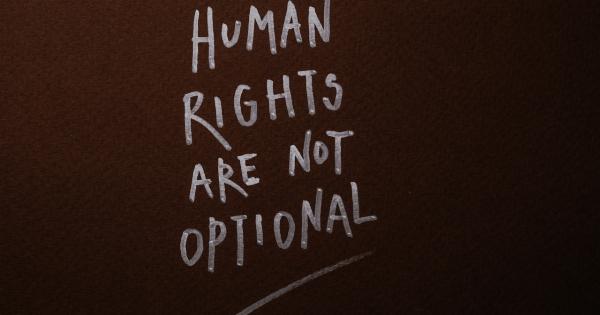Criticism is an integral part of life. No matter what we do or who we are, we are bound to face criticism at some point in our lives.
Whether it’s constructive or destructive, criticism can bring about feelings of vulnerability, helplessness, and defensiveness. However, it’s important to remember that criticism is not necessarily a bad thing. It can help us improve our performance, clear our misunderstandings, and make us grow as individuals.
Therefore, how we deal with criticism can determine how well we thrive in both our personal and professional lives.
Understand That Criticism Isn’t Personal
The first thing to remember when receiving criticism is that it’s not a personal attack on you as an individual. More often than not, the criticism is directed towards the action or the behavior that you exhibited.
Therefore, instead of taking it personally, try to look at it objectively and understand the other person’s point of view. It’s also important to remember that sometimes people criticize us, not because we are doing something wrong, but because they have a different perspective.
In such cases, learning to tolerate diverse opinions can go a long way in reducing the impact of the criticism.
Listen to the Criticism Without Becoming Defensive
One of the common reactions to criticism is defensiveness. This is a natural response as we all want to protect ourselves from negative feedback. However, becoming defensive can make the situation worse.
Instead, try to listen to the criticism without getting defensive or angry. When listening, make sure to pay attention to both the content and tone of the criticism. This will help you understand the underlying message the person is trying to convey. At the same time, refrain from arguing or justifying your actions.
Taking a negative stance will only worsen the problem.
Take Time to Reflect on the Criticism
It’s essential to reflect on the criticism after receiving it. Instead of reacting impulsively or denying the feedback, take time to process it thoroughly. Ask yourself whether the criticism is accurate or if there is some truth in it.
If the criticism is valid, consider the steps you can take to improve yourself. If it turns out to be incorrect or unwarranted, don’t dwell on it. Simply ignore it and move on. Remember that ignoring unwarranted criticism is also a part of dealing with criticism gracefully.
Respond to the Criticism Respectfully
After reflecting on the criticism, it’s time to respond to it. When responding, make sure to do so respectfully. Be aware of your tone and body language. Thank the person for their feedback and let them know that you are considering their thoughts.
If possible, ask for clarification or ask them to elaborate on the criticism. Responding respectfully not only helps you maintain your dignity but also shows that you are open to learning and growth.
Use Criticism to Improve Yourself
The main purpose of criticism is to help us grow and improve. Therefore, it’s important to use criticism constructively. Once you have reflected on the criticism and responded to it respectfully, it’s time to work on improving yourself.
Take the criticism as a learning opportunity and figure out ways to improve your actions or behavior. This can include seeking feedback regularly, asking for guidance from a mentor, or taking steps to gain more knowledge or skills. By working on ourselves, we not only improve our performance but also demonstrate that we are willing to learn and evolve.
Avoid Rumination and Negative Self-Talk
Finally, it’s important to avoid rumination and negative self-talk after receiving criticism. It’s common to overthink the criticism and beat ourselves up over it. This not only causes anxiety and stress but also derails the progress that we have made.
Therefore, try to reframe the criticism in a positive light. Remember that criticism isn’t a reflection of your worth as an individual. Instead, it’s an opportunity to learn and grow. Give yourself credit for being open to feedback and making an effort to improve yourself.
Conclusion
Dealing with criticism gracefully is an essential life skill that can help us grow and improve. By understanding that criticism isn’t personal and learning to listen to it without becoming defensive, we can reduce the impact of negative feedback.
Reflecting on the criticism and using it to make positive changes in our lives can help us thrive both professionally and personally. By avoiding rumination and negative self-talk, we can maintain our mental and emotional well-being. Ultimately, the ability to deal with criticism gracefully is an indication of our resilience, self-awareness, and openness to growth.































